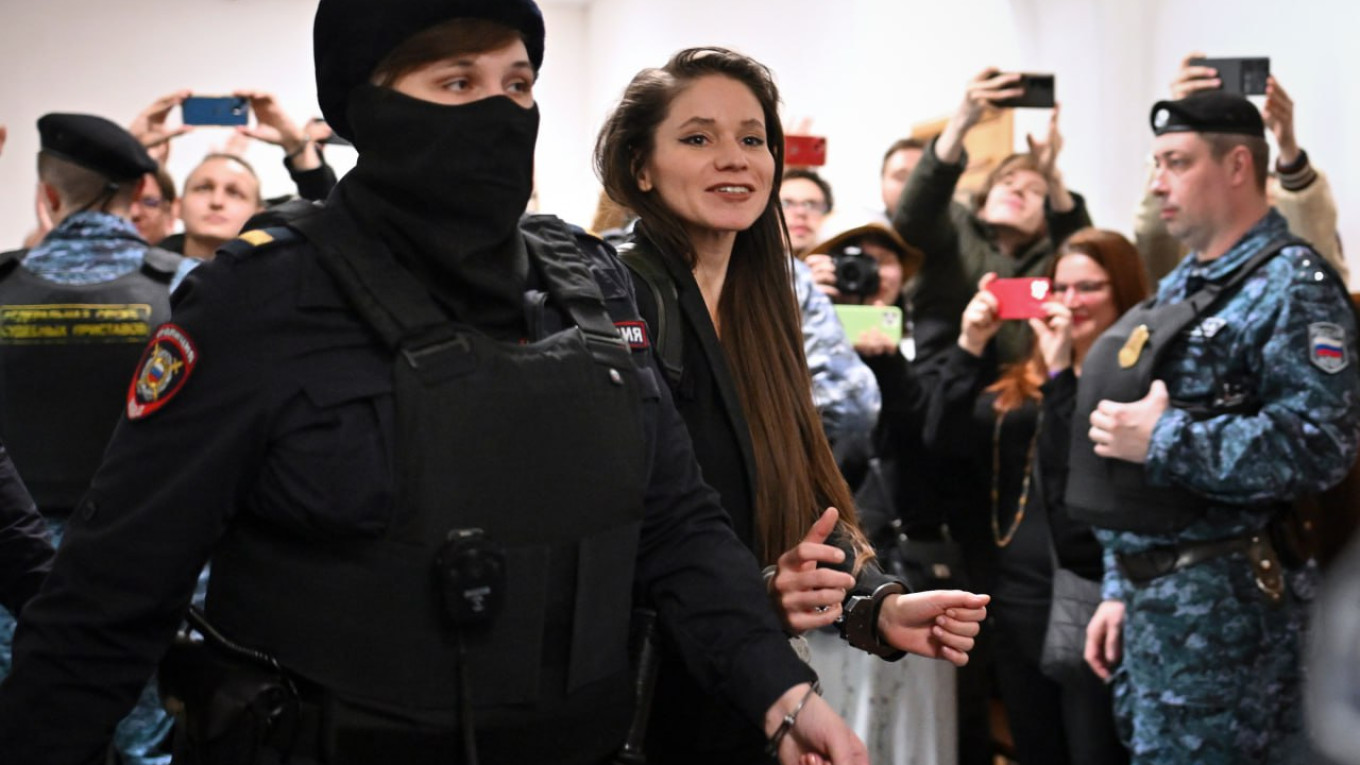In a stark manifestation of Russia’s tightening grip on free media, the arrest and subsequent charges against Antonina Favorskaya, a prominent journalist and activist, have sparked international concern over the state of press freedom in the country.
At 34 years old, Favorskaya, who also goes by the name Antonina Kravtsova, had made a name for herself as a fearless documenter of political trials and a staunch advocate for human rights.
Her journey into journalism was marked by a commitment to shedding light on the plight of political prisoners, a mission that has now landed her in the very situation she once documented from behind her camera lens.
Favorskaya’s career trajectory took a fateful turn when she joined the independent media outlet SOTAvision in 2022.
Motivated by a desire to amplify the voices of those silenced by the Russian regime, she threw herself into her work, covering high-profile cases such as that of opposition figure Ilya Yashin and the late Alexei Navalny.
Her photographs became a testament to the resilience of individuals facing persecution for their beliefs.
However, Favorskaya’s activism did not go unnoticed by the authorities. In a chilling turn of events, she found herself on the other side of the lens, facing charges of extremism—a move widely perceived as retaliation for her unyielding dedication to her journalistic endeavors.
Her arrest on March 17, 2024, while she was simply sitting at a cafe near Navalny’s gravesite, sent shockwaves through the journalistic community.
Accused of disobeying police orders, Favorskaya was swiftly detained, only to be rearrested the following day on charges related to her alleged involvement with Navalny’s Anti-Corruption Foundation (FBK), deemed an “extremist” organization by the Russian state.
Favorskaya vehemently denies the allegations, asserting that her arrest is a politically motivated attempt to silence her dissenting voice.
She has stood firm in her conviction, declaring in court that her persecution stems from her unwavering support for Navalny and her efforts to expose the injustices perpetrated by the Russian government.
The case has drawn condemnation from both domestic and international quarters, with SOTAvision appealing to the United Nations High Commissioner for Human Rights to intervene on Favorskaya’s behalf.
The organization, founded by Alexandra Ageeva, has decried the charges as a blatant attack on journalistic freedom, highlighting the perilous environment faced by reporters in Russia.
Indeed, Favorskaya’s ordeal is emblematic of a broader assault on press freedom in the country. The Council of Europe Platform for the Safety of Journalists reports that at least 27 journalists are currently imprisoned in Russia, with over 130 media outlets blocked in the past two years alone.
Such draconian measures reflect a concerted effort by the authorities to stifle dissent and quash any semblance of independent reporting.
As Andrei Kolesnikov, a senior fellow at the Carnegie Russia Eurasia Center, observes, the crackdown on journalists is intrinsically linked to the state’s relentless pursuit of its political adversaries.
Favorskaya’s arrest, he contends, is but one facet of a larger campaign aimed at silencing dissent and consolidating power.
In the face of mounting repression, Favorskaya remains resolute. Her unwavering determination to uphold the principles of press freedom serves as a beacon of hope in an increasingly hostile environment for journalists.
As the world watches her trial unfold, the outcome will not only determine her fate but also send a powerful message about the future of journalism in Russia.
This article was created using automation and was thoroughly edited and fact-checked by one of our editorial staff members

